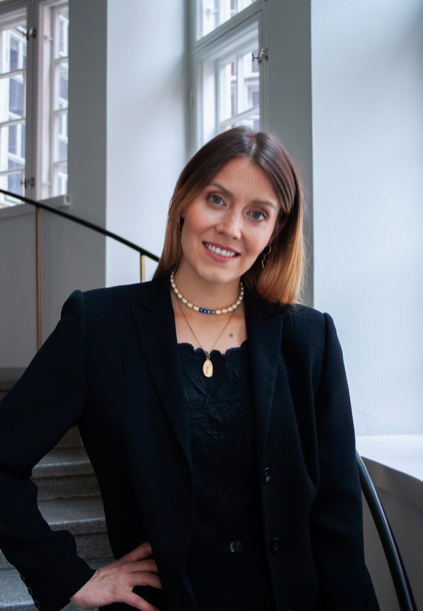
What are political fear, anger, hope and compassion, and why should they be discussed in the context of education? In this blog post, I revisit my PhD study, in which I tackled these questions from the viewpoint of educating for a democratic way of life and touched upon movements that have been successful in mobilising young people politically in recent years, such as #BlackLivesMatter and #FridaysforFuture. My central argument is that political emotions play a significant role in the establishment of democratic culture and in the political mobilisation of young people, which is why they should be discussed in education.
About the study
My PhD study scrutinized a world-known philosopher Martha Nussbaum’s work on political emotions – a perspective that had not been comprehensively examined in the field of education. The study explored both the tensions and the possibilities involved in education for political emotions, especially with respect to constructing collective political aims and addressing various global social and political challenges.
The study combined educational sciences and political philosophy. The work comprised three interrelated studies that approached the relevance of Nussbaum’s work to education from different angles through various real-life examples. Through the studies, Nussbaum’s work was discussed in three frameworks of political education: global citizenship education, democratic citizenship education, and human rights education.
Why talk about political emotions now?
”Polarisation and global challenges in liberal democracies increase the need for research on political emotions.”
Political emotions such as fear, anger and compassion have been recently observed in connection with the war in Ukraine. What is more, in recent years, the political culture of liberal democracies has become increasingly polarized. At the same time, societies are faced with complex shared global challenges, including climate change or the Covid-19 pandemic, for which constructive solutions should be sought together. Perhaps partly for these reasons, academic research on the significance of emotions in political mobilisation has increased in recent decades.
However, as I see it, emotions are not discussed in education or related research to a sufficient degree. This is strange, considering that education plays a significant role in establishing and supporting a democratic lifestyle.
What are political emotions?
“Political emotions are significant, as they tell us something about our values and can induce people and groups to act.”
In my research, I view emotions as cognitive judgements and as value judgements. That is to say, emotions are about something and they are always evaluative, meaning that the object of emotion is something that has some significance to the person experiencing the emotion (e.g. Nussbaum, 2001). The cognitive element of emotions suggests that they are intertwined with the way we receive information about the world and with the way we communicate information to others.
What is ‘political’ about ‘political emotions’? I draw attention to the distinction between private and individual, on the one hand, and public and collective emotions, on the other (e.g. grief over a lost loved one as a private emotion vs. climate anxiety as a political emotion). I view political emotions as public, both in terms of their object and in terms of their expression. Furthermore, I wish to highlight that emotions are associated with political potential: that is, emotions can motivate the pursuit of social change and transformation, which can take a variety of forms, including voting, advocating for policy, activism, or sharing information about injustices on social media. Also, it should be noted that I understand the ‘political’ in political emotions in its broadest possible form, describing the public life and the public realm and not as restricted to, for instance, existing political institutions, party politics or voting.
Findings/argument
”Emotions should be thoroughly understood in all their ambiguities and possibilities to make them useful to the culture of democracy.”
My PhD study offered several findings, starting with the problematic consequences that negative political emotions (fear and anger) can have for the democratic decision-making and education policy. Furthermore, the political, in citizenship education, should be understood as a collective striving toward shared goals, supported by constructive political emotions, rather than as a conflictual relation between ‘us’ and ‘them’. The study also took the first steps in envisioning a ‘Nussbaumian pedagogy’, suggesting different ways in which political compassion and narrative imagination could be reflectively practised in classrooms when teaching and learning about human rights issues, laying down a sustainable foundation for global democratic citizenship.
I argued that a well-functioning democracy should establish and pursue at least some shared political goals, and that political emotions, such as hope, compassion and trust, engender the desire and motivation to commit to these shared goals. Thus, political emotions become pertinent also for education. Education has an essential role in learning to adopt democracy and in the dismantling of political and social challenges, such as racist discrimination.
However, not all political emotions are necessarily constructive and beneficial to democracy; emotions need to be analysed and understood, and critically assessed in today’s polarised social and political environment, so that they can be utilised in educating people for a democratic way of life. Therefore, I urge that emotions, their different manifestations as well as potential benefits and harms, should be introduced both to public and school discourse.
As a whole, my PhD study offered new perspectives and ways to explore the relationship between politics, emotions and education. The present times have been considered by many as exceptionally dark, so I have strived to articulate much needed suggestions for education which are constructive and hopeful.
Iida Pyy
PhD, Postdoctoral Researcher at DEMOPOL project
Faculty of Educational Sciences
University of Helsinki
iida.pyy(at)helsinki.fi
Twitter: @iidapyy
Researcher profile: https://researchportal.helsinki.fi/en/persons/iida-pyy
ORCID: https://orcid.org/0000-0001-9138-166X
The PhD thesis Evolving Emotions: The relevance of Martha Nussbaum’s theory of political emotions in Education was presented for public discussion at the University of Helsinki, on the 27th of May, 2022. The thesis earned distinction, and its summary can be accessed here.
The PhD thesis was based on the following original publications that are available online:
Pyy, I., Leiviskä, A., & Mansikka, J-E. (2020). Contesting the Politics of Negative Emotions in Educational Policymaking: A Ban on Asylum Seekers’ School Visits in Finland. Global Discourse, 10(2–3), 371–390. https://doi.org/10.1332/204378920X15802968112372
Leiviskä, A., & Pyy, I. (2020). The Unproductiveness of Political Conflict in Education: A Nussbaumian Alternative to Agonistic Citizenship Education. Journal of Philosophy of Education. 55, 577– 588. https://doi.org/10.1111/1467-9752.12512
Pyy, I. (2021). Developing political compassion through narrative imagination in human rights education. Human Rights Education Review, 4(3) 24–44. https://doi.org/10.7577/hrer.4482
Who am I?
I am Iida Pyy, a Postdoctoral Researcher of the DEMOPOL project in the Faculty of Educational Sciences, University of Helsinki. Before my postgraduate studies, I studied at the University of Oulu and the University of Melbourne, Australia, with intercultural education as my major subject. Previously, I have worked as a bilingual class teacher and a special class teacher as well as at UNICEF Finland. In addition to research, I am involved in activities associated with antiracism and social responsibility.

